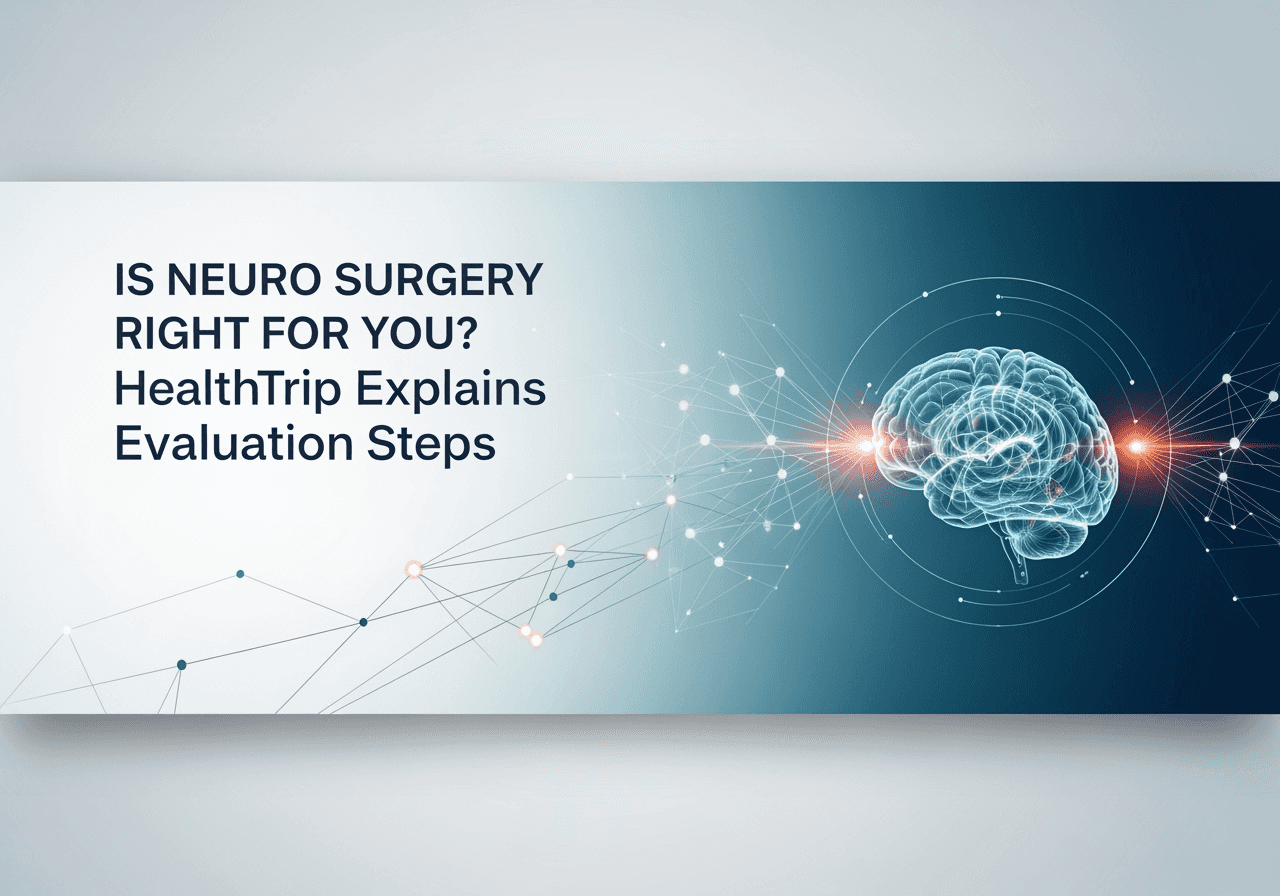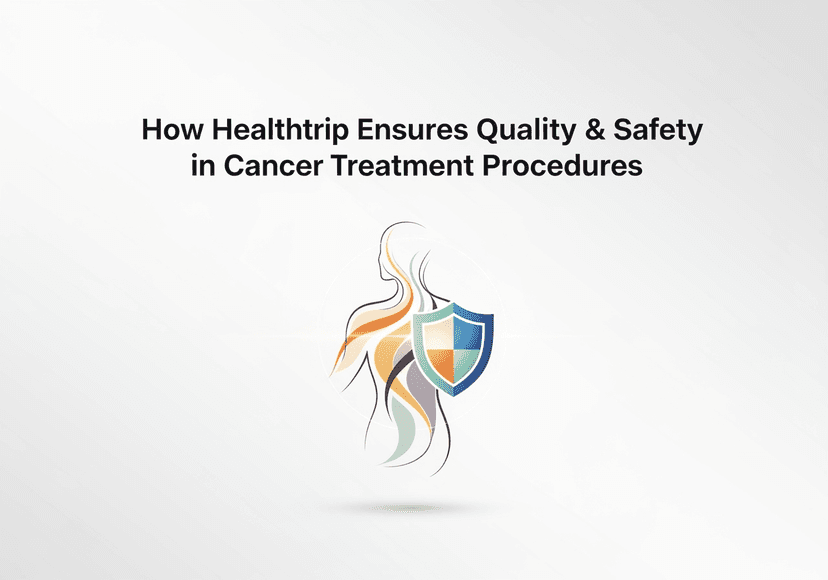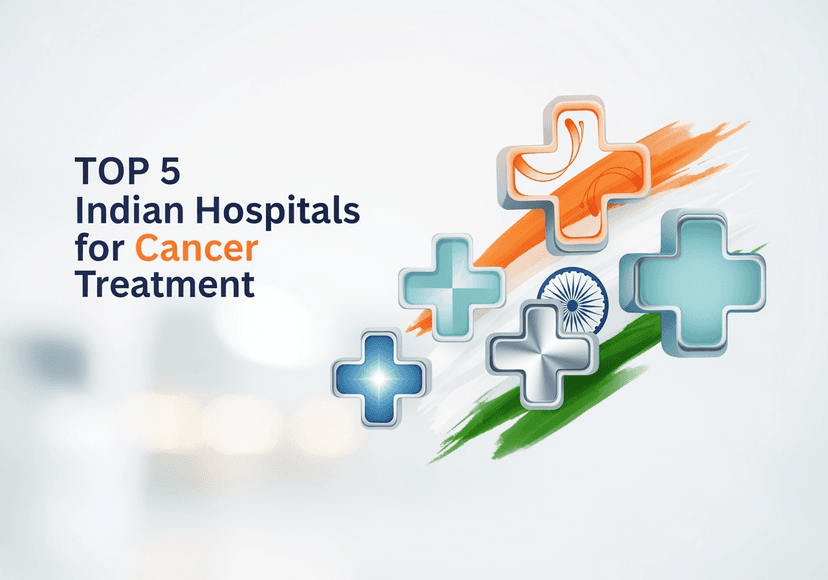
Is Neuro Surgery Right for You? Healthtrip Explains Evaluation Steps
14 Oct, 2025
 Healthtrip
Healthtrip- Where to Seek Neurosurgical Evaluation < li>Why Neuro Surgery is Considered: Common Conditions
- Who is a Neuro Surgery Candidate? Identifying Potential Patients
- Neuro Surgery Evaluation Steps: A Detailed Breakdown
- Examples and Success Stories: Real-Life Outcomes
- Factors Affecting Neuro Surgery Decision
- Hospitals: Neuro Surgery at Select Locations < li>Conclusion
Understanding Neurosurgery and Its Potential Benefits
Neurosurgery encompasses a wide range of procedures focused on treating conditions affecting the brain, spinal cord, and peripheral nerves. From addressing debilitating back pain caused by herniated discs to tackling life-threatening brain tumors, neurosurgery can offer significant relief and improved quality of life. It's not just about surgery; it's about restoring function, alleviating pain, and enabling you to live a fuller life. Consider the potential benefits: improved mobility, reduced pain, restored cognitive function, and even the chance to overcome a previously insurmountable medical challenge. However, it's crucial to remember that neurosurgery is a serious undertaking, and the decision to proceed should be made with careful consideration and a thorough understanding of the risks and alternatives. Healthtrip is here to make this process easier by providing you with access to expert consultations and comprehensive information, including connecting you with top hospitals known for neurological excellence such as Memorial Bahçelievler Hospital and NMC Specialty Hospital, Abu Dhabi.
Most popular procedures in India
Initial Consultation and Neurological Examination
The first crucial step in determining if neurosurgery is right for you involves a comprehensive consultation with a qualified neurosurgeon. This isn't just a quick chat; it's an in-depth discussion about your medical history, symptoms, and overall health. The neurosurgeon will conduct a thorough neurological examination, assessing your reflexes, muscle strength, sensation, and coordination. This examination helps pinpoint the source of your problem and understand the extent of its impact on your neurological function. Don't hesitate to be open and honest about your concerns and expectations. This consultation is your opportunity to ask questions, clarify doubts, and establish a strong rapport with your neurosurgeon. Hospitals like Quironsalud Hospital Murcia and Vejthani Hospital are equipped to provide a thorough consultation, and Healthtrip will guide you in finding the best option for your specific needs, ensuring you receive the personalized attention you deserve.
Advanced Imaging and Diagnostic Tests
Neurological conditions often require more than just a physical examination to understand the underlying issues. Advanced imaging techniques play a pivotal role in visualizing the brain, spinal cord, and surrounding structures. MRI (Magnetic Resonance Imaging) provides detailed images of soft tissues, helping to detect tumors, herniated discs, and other abnormalities. CT scans (Computed Tomography) are excellent for visualizing bone structures and detecting fractures or bleeding. Other diagnostic tests, such as EEG (electroencephalogram) for seizures and nerve conduction studies for nerve damage, may also be necessary. These tests provide valuable information that helps neurosurgeons make accurate diagnoses and develop tailored treatment plans. Healthtrip assists in coordinating these diagnostic tests at leading facilities like Yanhee International Hospital and Saudi German Hospital Cairo, Egypt, ensuring you get the most accurate and comprehensive assessment possible.
Wellness Treatments
Give yourself the time to relax
Lowest Prices Guaranteed!

Lowest Prices Guaranteed!
Evaluating Alternative Treatment Options
Neurosurgery isn't always the first or only option. A responsible neurosurgeon will explore all possible alternative treatments before recommending surgery. These alternatives may include medication management, physical therapy, pain management techniques, injections, and lifestyle modifications. Sometimes, a combination of these approaches can effectively manage your condition without the need for invasive surgery. It's essential to have an open discussion with your neurosurgeon about these alternatives, understanding their potential benefits and limitations. For example, physiotherapy might be a suitable option for back pain. Healthtrip encourages you to seek second opinions and explore nonsurgical options whenever appropriate, and we can connect you with specialists at hospitals like Bangkok Hospital and Taoufik Clinic, Tunisia, who can provide comprehensive evaluations and alternative treatment strategies.
Understanding the Risks and Benefits of Neurosurgery
Before making a decision about neurosurgery, it's imperative that you have a clear understanding of both the potential benefits and the associated risks. Every surgical procedure carries some level of risk, including infection, bleeding, blood clots, and adverse reactions to anesthesia. Neurosurgery, given its complexity and proximity to delicate neurological structures, also carries specific risks such as nerve damage, paralysis, cognitive deficits, and stroke. Your neurosurgeon should discuss these potential risks in detail, explaining the likelihood of each occurring and the measures they will take to minimize them. Weighing these risks against the potential benefits is a crucial step in deciding if neurosurgery is the right choice for you. Healthtrip ensures you receive transparent and comprehensive information about the risks and benefits, and can connect you with specialized centers like NPISTANBUL Brain Hospital and Cleveland Clinic London where you can get a more in-depth evaluation of your potential surgery.
Seeking a Second Opinion
When facing a complex medical decision like neurosurgery, seeking a second opinion is always a wise choice. It provides you with another perspective, confirms the initial diagnosis, and offers alternative treatment options. A second opinion can also increase your confidence in the recommended course of action, knowing that you've explored all possibilities. Don't hesitate to seek a second opinion, even if you trust your initial neurosurgeon. It's your right as a patient, and it's a valuable tool for making informed decisions about your health. Healthtrip actively encourages second opinions and can facilitate consultations with leading neurosurgeons at renowned hospitals such as Hisar Intercontinental Hospital and Fortis Hospital, Noida, ensuring you have the most comprehensive information available.
Preparing for Neurosurgery: Pre-operative Assessment and Planning
Once you've decided to proceed with neurosurgery, thorough pre-operative assessment and planning are essential for a successful outcome. This involves a comprehensive review of your medical history, a physical examination, and additional tests such as blood work and an ECG (electrocardiogram) to assess your overall health and identify any potential risks. Your neurosurgeon will also discuss the surgical procedure in detail, explaining the steps involved, the expected recovery period, and any lifestyle modifications you may need to make. This is also the time to discuss any concerns you have about pain management, rehabilitation, and post-operative care. Healthtrip streamlines this process by assisting with pre-operative arrangements at hospitals like LIV Hospital, Istanbul and Singapore General Hospital, ensuring you are fully prepared and confident as you approach your surgery.
Post-operative Care and Rehabilitation
The journey doesn't end with the surgery itself. Post-operative care and rehabilitation are crucial for maximizing your recovery and achieving the best possible outcome. This may involve a combination of medication management, wound care, physical therapy, occupational therapy, and speech therapy, depending on your specific needs. It's important to follow your neurosurgeon's instructions carefully and attend all scheduled follow-up appointments. Rehabilitation can be a challenging process, but with dedication and the right support, you can regain your strength, function, and independence. Healthtrip provides ongoing support and connects you with rehabilitation specialists at facilities like Mount Elizabeth Hospital and Helios Klinikum Erfurt, helping you navigate the post-operative phase and achieve a full and successful recovery.
Where to Seek Neurosurgical Evaluation
Embarking on a journey to address neurological concerns can feel like navigating a complex maze. Knowing where to begin your search for expert care is the first, and perhaps most crucial, step. For many, the initial point of contact is their primary care physician. These doctors, acting as the gatekeepers of your health, can assess your symptoms, conduct preliminary examinations, and provide invaluable referrals to specialists. Think of them as your trusted guides, offering a familiar face and a comforting hand as you venture into the realm of specialized medical care. They know your medical history, understand your general health, and can tailor their recommendations to suit your individual needs. Don't hesitate to lean on their expertise; they're there to help you navigate the system and ensure you receive the best possible care.
However, when neurological symptoms persist or are particularly severe, seeking a direct referral to a neurologist or neurosurgeon becomes essential. Neurologists are specialists in diagnosing and treating disorders of the nervous system, offering a wide range of non-surgical interventions. Neurosurgeons, on the other hand, are surgical specialists who address neurological conditions through operative procedures. The choice between the two often depends on the nature and severity of your condition. A neurologist might be the ideal first step for conditions like migraines or epilepsy, while a neurosurgeon might be necessary for issues such as brain tumors or spinal cord compression. Healthtrip can be your ally in identifying and connecting with qualified neurologists and neurosurgeons globally, ensuring you have access to a network of experts who can provide accurate diagnoses and personalized treatment plans. We understand the importance of timely and appropriate care, and we're here to streamline the process, making it easier for you to find the right specialist for your specific needs.
Beyond individual specialists, comprehensive neurosurgical evaluations are often best sought at reputable hospitals and specialized neurological centers. These institutions boast multidisciplinary teams, advanced diagnostic equipment, and state-of-the-art surgical facilities, providing a holistic approach to patient care. For example, institutions like Fortis Memorial Research Institute, Gurgaon, and Vejthani Hospital are renowned for their neurological expertise and cutting-edge technology. Selecting a hospital with a strong reputation in neurosurgery ensures you're in the hands of experienced professionals who are well-versed in the latest advancements in the field. Healthtrip partners with a network of esteemed hospitals around the world, including Saudi German Hospital Cairo, Egypt and Memorial Bahçelievler Hospital, offering you a diverse range of options to choose from. We carefully vet our partner hospitals to ensure they meet the highest standards of quality, safety, and patient satisfaction, giving you peace of mind as you make important decisions about your healthcare.
Why Neuro Surgery is Considered: Common Conditions
Neurosurgery, often perceived as a drastic measure, is actually a vital and sometimes life-saving intervention for a variety of complex conditions affecting the brain, spinal cord, and peripheral nerves. It's not always the first line of defense, but when other treatments prove ineffective or when the condition poses an immediate threat to a patient's well-being, neurosurgery becomes a necessary consideration. Think of it as a highly skilled carpenter meticulously repairing the intricate framework of the nervous system. Skilled neurosurgeons can alleviate pain, restore function, and improve the overall quality of life for individuals suffering from debilitating neurological disorders. It's about providing hope and a chance at a better future when other options have been exhausted.
One of the most common reasons for neurosurgical intervention is the presence of brain tumors. These abnormal growths can exert pressure on surrounding brain tissue, causing a range of symptoms depending on their location and size. From headaches and seizures to cognitive impairments and motor deficits, brain tumors can significantly impact a person's daily life. Neurosurgery offers the possibility of removing or reducing the size of these tumors, relieving pressure on the brain and improving neurological function. Healthtrip works with hospitals like QUIRONSALUD PROTON THERAPY CENTRE, which offer advanced techniques in neuro-oncology, ensuring that patients have access to the most innovative and effective treatments available. We understand the anxiety and uncertainty that come with a brain tumor diagnosis, and we're committed to guiding you through the process, connecting you with the best specialists and supporting you every step of the way.
Spinal cord compression, another frequent indication for neurosurgery, occurs when the spinal cord is squeezed or compressed, often due to herniated discs, spinal stenosis, or tumors. This compression can lead to pain, numbness, weakness, and even paralysis. Neurosurgical procedures aim to relieve the pressure on the spinal cord, restoring nerve function and alleviating symptoms. Conditions like herniated discs, which involve the displacement of the cushioning discs between vertebrae, are often treated with minimally invasive surgical techniques to remove the offending portion of the disc. Healthtrip can help you explore options at hospitals such as Hisar Intercontinental Hospital that specialize in these advanced procedures, ensuring you receive the most appropriate and effective treatment for your specific condition. We believe that everyone deserves access to quality neurosurgical care, and we're dedicated to making that a reality, regardless of your location or circumstances. Peripheral nerve disorders, such as carpal tunnel syndrome, can also necessitate surgical intervention when conservative treatments fail to provide relief. These conditions involve damage or compression of nerves outside the brain and spinal cord, leading to pain, numbness, and weakness in the affected area. Neurosurgery can help to release the compressed nerve, restoring function and alleviating symptoms.
Who is a Neuro Surgery Candidate? Identifying Potential Patients
Determining whether someone is a suitable candidate for neurosurgery is a multifaceted process that requires careful consideration of various factors. It's not simply a matter of having a neurological condition; it's about weighing the potential benefits of surgery against the associated risks and considering the individual's overall health and lifestyle. Think of it as a delicate balancing act, where neurosurgeons meticulously assess each patient to determine the most appropriate course of action. A successful neurosurgical outcome depends not only on the surgeon's skill but also on the patient's ability to tolerate the procedure and recover effectively. It's a collaborative effort, involving the patient, their family, and a team of medical professionals working together to make informed decisions.
Typically, individuals who have exhausted other treatment options without experiencing significant improvement may be considered for neurosurgery. This might include patients with chronic pain that hasn't responded to medication, physical therapy, or other conservative measures. It can also include people with progressive neurological deficits, such as worsening weakness or loss of sensation, that are impacting their quality of life. However, it's important to remember that neurosurgery is not always a guaranteed solution, and the decision to proceed should be made in consultation with a qualified neurosurgeon and after a thorough evaluation. Healthtrip facilitates connections with experienced neurosurgeons at reputable hospitals like Bangkok Hospital, ensuring that you have access to expert opinions and comprehensive assessments. We believe in empowering patients to make informed decisions about their health, and we're here to provide you with the resources and support you need to navigate the complexities of neurosurgical care.
Furthermore, the presence of specific neurological conditions often warrants consideration for neurosurgery. For instance, patients with brain tumors that are causing significant symptoms or posing a threat to vital brain structures are often candidates for surgical removal or debulking. Similarly, individuals with spinal cord compression resulting from herniated discs, spinal stenosis, or tumors may benefit from surgery to relieve pressure on the spinal cord and restore nerve function. The severity of the condition, the patient's overall health, and the potential risks and benefits of surgery all play a crucial role in determining the suitability of neurosurgical intervention. Healthtrip can connect you with leading neurosurgical centers like NMC Specialty Hospital, Al Nahda, Dubai, offering access to cutting-edge diagnostic tools and advanced surgical techniques. We understand that facing the prospect of neurosurgery can be daunting, and we're committed to providing you with the information and support you need to make informed decisions and feel confident in your care. The evaluation process typically involves a comprehensive neurological examination, imaging studies such as MRI or CT scans, and a detailed discussion of the patient's medical history and lifestyle. This thorough assessment allows the neurosurgeon to determine the most appropriate treatment plan and to ensure that the patient is a suitable candidate for surgery. The goal is always to improve the patient's quality of life and to minimize the risks associated with the procedure. Healthtrip is your partner in navigating this complex landscape, connecting you with the right experts and supporting you every step of the way.
Also Read:
Neuro Surgery Evaluation Steps: A Detailed Breakdown
Embarking on the journey toward neurosurgery requires a comprehensive and meticulous evaluation. This process isn't just about identifying a problem; it's about understanding the full scope of the issue, exploring all possible solutions, and ultimately, making the best decision for your long-term well-being. Think of it as a detective meticulously gathering clues to solve a complex case. The first step typically involves a thorough neurological examination. Your doctor will assess your reflexes, muscle strength, sensation, balance, coordination, and mental status. This helps pinpoint the areas of your nervous system that may be affected. Next, advanced imaging techniques come into play. Magnetic Resonance Imaging (MRI) is a cornerstone, providing detailed pictures of your brain and spinal cord. Computed Tomography (CT) scans offer cross-sectional images, particularly useful for visualizing bone structures. These scans help to visualize the extent of the problem, be it a tumor, herniated disc, or vascular malformation. Electrophysiological tests, such as electromyography (EMG) and nerve conduction studies (NCS), may be used to assess the function of your nerves and muscles. These tests help determine if nerve damage is contributing to your symptoms. The neurosurgical team will carefully review your medical history, including any previous illnesses, surgeries, and medications. They will also discuss your current symptoms in detail, paying close attention to how they impact your daily life. By integrating all this information, the neurosurgical team can develop a personalized treatment plan tailored to your specific needs. At Healthtrip, we understand that this evaluation process can be overwhelming. We are here to connect you with world-class neurosurgical centers and provide support and guidance every step of the way, ensuring you feel informed and empowered to make the best decisions for your health.
Understanding Diagnostic Procedures
Delving deeper into the diagnostic procedures, it's essential to understand what each test entails and what information it provides. An MRI, for instance, uses powerful magnets and radio waves to create detailed images of the brain and spinal cord. You'll lie inside a large, cylindrical machine while images are being taken. It's painless, but can be a bit noisy, so earplugs are often provided. CT scans, on the other hand, use X-rays to create cross-sectional images. They are quicker than MRIs and can be particularly useful in emergency situations. However, they involve a small amount of radiation exposure. Electrophysiological tests, like EMG and NCS, assess the electrical activity of your nerves and muscles. During an EMG, a small needle electrode is inserted into a muscle to record its electrical activity. NCS involves placing electrodes on your skin to stimulate nerves and measure how quickly electrical signals travel along them. These tests can help identify nerve damage or muscle disorders. Beyond these standard tests, other specialized assessments may be necessary depending on your specific condition. Angiography, for example, involves injecting a contrast dye into blood vessels to visualize them in detail on X-rays. This is often used to assess blood flow to the brain or spinal cord. Myelography involves injecting dye into the spinal canal to visualize the spinal cord and nerve roots. It's important to ask your healthcare team about any tests you're undergoing, what they involve, and what the results mean. At Healthtrip, we believe in empowering our patients with knowledge. We can help you connect with medical professionals who will explain these procedures clearly and answer all your questions, ensuring you feel confident and informed throughout the evaluation process. Remember, knowledge is power, especially when making important decisions about your health.
Examples and Success Stories: Real-Life Outcomes
Hearing about real-life outcomes can provide immense hope and comfort when facing the prospect of neurosurgery. Consider the story of a patient who had been suffering from debilitating back pain due to a herniated disc. Conservative treatments like physical therapy and pain medication offered little relief. After undergoing a minimally invasive discectomy, a surgical procedure to remove the damaged portion of the disc, the patient experienced significant pain relief and was able to return to an active lifestyle. This is just one example of how neurosurgery can transform lives. Another inspiring success story involves a patient diagnosed with a brain tumor. Following a craniotomy, a surgical procedure to remove the tumor, and subsequent radiation therapy, the patient achieved complete remission and regained their neurological function. These are not isolated cases. Advances in neurosurgical techniques, coupled with sophisticated imaging and monitoring technologies, have led to improved outcomes for a wide range of conditions. Minimally invasive approaches, for example, allow surgeons to operate through smaller incisions, resulting in less pain, faster recovery times, and reduced risk of complications. Stereotactic radiosurgery, such as Gamma Knife or CyberKnife, delivers highly focused radiation beams to tumors or other targets in the brain, minimizing damage to surrounding healthy tissue. While every patient's journey is unique, these success stories highlight the potential benefits of neurosurgery and underscore the importance of seeking expert evaluation and treatment. At Healthtrip, we are committed to sharing these stories of hope and connecting you with the best neurosurgical care available. We believe that everyone deserves the opportunity to live a full and healthy life, free from the burden of neurological conditions.
Sharing Hope and Inspiring Confidence
It's crucial to remember that success in neurosurgery isn't solely defined by the absence of disease. It's equally about improving the patient's quality of life, restoring their independence, and helping them regain their ability to participate in activities they enjoy. Think about a patient with Parkinson's disease who undergoes deep brain stimulation (DBS). This procedure involves implanting electrodes in specific areas of the brain to regulate abnormal electrical activity. While DBS doesn't cure Parkinson's, it can significantly reduce tremors, rigidity, and other motor symptoms, allowing patients to live more fulfilling lives. Similarly, consider a patient with trigeminal neuralgia, a chronic pain condition that causes excruciating facial pain. Microvascular decompression (MVD), a surgical procedure to relieve pressure on the trigeminal nerve, can provide long-term pain relief for many patients. These examples underscore the importance of setting realistic expectations and understanding the potential benefits and risks of neurosurgery. It's also essential to have a strong support system in place, including family, friends, and healthcare professionals. At Healthtrip, we recognize the emotional and psychological challenges that often accompany neurosurgical conditions. We are here to provide comprehensive support, from connecting you with experienced neurosurgeons to offering resources for coping with anxiety and stress. We believe that a positive attitude and a strong support network can make a significant difference in your journey toward recovery. Remember, you are not alone.
Also Read:
Factors Affecting Neuro Surgery Decision
Deciding whether or not to undergo neurosurgery is a multifaceted process, influenced by a complex interplay of medical, personal, and lifestyle factors. It's not a simple yes or no answer, but a careful weighing of benefits against potential risks and alternatives. The severity and nature of the condition itself play a pivotal role. A rapidly growing brain tumor, for instance, may necessitate prompt surgical intervention to prevent irreversible neurological damage. Conversely, a small, slow-growing tumor may be monitored with regular imaging scans and conservative management. Your overall health and medical history are equally important considerations. Pre-existing conditions such as heart disease, diabetes, or bleeding disorders can increase the risks associated with surgery. Your age and functional status also influence the decision-making process. Older adults or individuals with significant mobility impairments may face a higher risk of complications. The availability of alternative treatments is another crucial factor. In some cases, non-surgical options like medication, physical therapy, or minimally invasive procedures may provide sufficient relief. It's essential to explore all available alternatives and discuss their potential benefits and risks with your healthcare team. Your personal preferences and values are also paramount. Some individuals may be more risk-averse and prefer to exhaust all non-surgical options before considering surgery. Others may be more willing to accept the risks of surgery in exchange for the potential benefits of improved function and pain relief. At Healthtrip, we understand that this decision-making process can be overwhelming. We can help you gather information about your condition, explore treatment options, and connect with experienced neurosurgeons who can provide personalized guidance. Remember, the ultimate decision is yours, and we are here to support you every step of the way.
Navigating the Decision-Making Process
Further elaborating on the factors influencing the decision, it's vital to consider the potential impact of surgery on your daily life and long-term well-being. Will the surgery improve your ability to work, care for your family, or participate in activities you enjoy? What is the expected recovery time, and what are the potential long-term complications? These are critical questions to ask your healthcare team. The experience and expertise of the neurosurgeon are also crucial considerations. Look for a board-certified neurosurgeon with extensive experience in treating your specific condition. Don't hesitate to ask about their success rates and complication rates. Getting a second opinion from another neurosurgeon can provide additional perspective and help you feel more confident in your decision. It's also important to consider the financial aspects of surgery. Neurosurgery can be expensive, and it's essential to understand your insurance coverage and any out-of-pocket costs. At Healthtrip, we can assist you in navigating the financial aspects of your treatment by providing information about insurance coverage, payment options, and potential financial assistance programs. We believe that access to quality healthcare should not be limited by financial constraints. Finally, trust your instincts. This is a deeply personal decision, and it's essential to listen to your inner voice. If you feel uncomfortable with a particular treatment plan, don't hesitate to seek a second opinion or explore alternative options. Remember, you are the driver of your healthcare journey, and we are here to help you navigate the road.
Also Read:
Hospitals: Neuro Surgery at Select Locations
Choosing the right hospital for neurosurgery is a critical decision, impacting not only the success of the procedure but also your overall experience. Several hospitals stand out for their expertise, technology, and patient-centered care in neurosurgical interventions. Memorial Sisli Hospital in Istanbul, Turkey, is renowned for its comprehensive neurosurgical department, featuring state-of-the-art equipment and a team of highly skilled neurosurgeons. They offer a wide range of neurosurgical procedures, including brain tumor surgery, spinal surgery, and deep brain stimulation. Another excellent option is Fortis Memorial Research Institute in Gurgaon, India. This hospital boasts a dedicated neurosurgery unit with advanced imaging capabilities and minimally invasive surgical techniques. Their team of neurosurgeons has extensive experience in treating complex neurological conditions. In Bangkok, Thailand, Bangkok Hospital is a leading medical center known for its advanced neurosurgical services. They offer a full spectrum of neurosurgical procedures, from routine spinal surgeries to complex brain tumor resections. In Germany, Helios Klinikum Erfurt offers a comprehensive neurosurgical department with a focus on minimally invasive techniques and advanced imaging. In the United Arab Emirates, NMC Specialty Hospital, Al Nahda, Dubai, is a well-regarded facility offering a variety of neurosurgical services. These hospitals represent some of the best options for neurosurgical care worldwide. When choosing a hospital, consider factors such as the hospital's reputation, the neurosurgeon's experience, the availability of advanced technology, and the hospital's commitment to patient care. At Healthtrip, we can help you connect with these leading hospitals and neurosurgeons, providing personalized support and guidance throughout your medical journey.
Spotlight on Leading Neuro Surgery Centers
Expanding on the hospital highlights, let's delve deeper into what makes these facilities exceptional choices for neurosurgical treatment. Memorial Bahçelievler Hospital, also in Istanbul, complements Memorial Sisli with its advanced neuro-oncology services and focus on robotic-assisted surgeries, ensuring precision and minimizing invasiveness. Their multidisciplinary approach integrates neurosurgery with oncology, radiology, and rehabilitation for comprehensive patient care. Fortis Hospital, Noida, another facility under the Fortis Healthcare umbrella in India, mirrors the high standards of its Gurgaon counterpart, providing accessibility for patients in the Delhi NCR region. They excel in minimally invasive spine surgery and neurovascular interventions. Yanhee International Hospital in Bangkok, Thailand, presents another appealing option due to its renowned international patient services and comprehensive range of neurosurgical offerings, including advanced pain management techniques for chronic neurological conditions. Similarly, Vejthani Hospital, also in Bangkok, is known for its dedicated international patient center and experienced team of neurosurgeons specializing in complex spinal disorders and brain injuries. Considering facilities closer to Europe, Quironsalud Hospital Toledo in Spain offers cutting-edge neurosurgical treatments, including stereotactic radiosurgery and minimally invasive spinal procedures. Their commitment to research and innovation ensures patients have access to the latest advancements in neurosurgical care. For those seeking treatment in the Middle East, the Saudi German Hospital Cairo, Egypt provides high-quality neurosurgical services with a focus on affordability. The hospital is well-equipped and staffed with experienced neurosurgeons. When considering these options, remember to research patient reviews, compare treatment costs, and ensure the hospital offers the specific procedures and technologies relevant to your needs. Healthtrip streamlines this process by providing comprehensive information and personalized assistance to help you make an informed decision.
Conclusion
Navigating the world of neurosurgery can feel like traversing a complex maze, filled with technical jargon, daunting procedures, and weighty decisions. However, with the right information, support, and guidance, you can confidently chart your course toward optimal health and well-being. Remember that early and accurate diagnosis is paramount. Don't hesitate to seek a second opinion or consult with multiple specialists to ensure you have a comprehensive understanding of your condition. Explore all available treatment options, both surgical and non-surgical, and weigh the potential benefits and risks carefully. Choose a neurosurgeon with extensive experience and a proven track record of success. Select a hospital that offers advanced technology, a patient-centered environment, and a multidisciplinary team of experts. Embrace a holistic approach to healing, incorporating lifestyle modifications, stress management techniques, and a strong support system. Throughout your journey, remember that you are not alone. Healthtrip is here to provide unwavering support and guidance, connecting you with world-class neurosurgical centers, experienced medical professionals, and valuable resources. We believe that everyone deserves access to quality healthcare and the opportunity to live a full and healthy life.
Empowering Your Journey to Neurological Wellness
Ultimately, your journey through neurosurgery is about empowerment. It's about taking control of your health, making informed decisions, and actively participating in your treatment plan. Embrace the opportunity to learn about your condition, ask questions, and advocate for your needs. Remember that healing is a process, not an event. There will be ups and downs, but with perseverance, resilience, and a positive attitude, you can overcome challenges and achieve your goals. Celebrate small victories along the way and never lose sight of your vision for a healthier, happier future. At Healthtrip, we are committed to being your trusted partner on this journey. We will provide you with the information, resources, and support you need to navigate the complexities of neurosurgery and make the best decisions for your long-term well-being. Whether you're seeking a second opinion, exploring treatment options, or simply need a listening ear, we are here for you. Together, we can empower you to take control of your neurological health and live your life to the fullest. Your health is our priority, and we are dedicated to helping you achieve your health goals.
Related Blogs

How Healthtrip Ensures Quality & Safety in Cancer Treatment Procedures
Detailed guide on cancer treatment, featuring doctors, hospitals, risks, recovery,

End-to-End Logistics for Cancer Treatment with Healthtrip's Support
Detailed guide on cancer treatment, featuring doctors, hospitals, risks, recovery,

Healthtrip's Care Coordinators: Your Support During Cancer Treatment
Detailed guide on cancer treatment, featuring doctors, hospitals, risks, recovery,

Healthtrip's Care Coordinators: Your Support During Cancer Treatment
Detailed guide on cancer treatment, featuring doctors, hospitals, risks, recovery,

Top 5 Indian Hospitals for Cancer Treatment
Detailed guide on cancer treatment, featuring doctors, hospitals, risks, recovery,

Post-Cancer Treatment Diet and Lifestyle Tips
Detailed guide on cancer treatment, featuring doctors, hospitals, risks, recovery,










